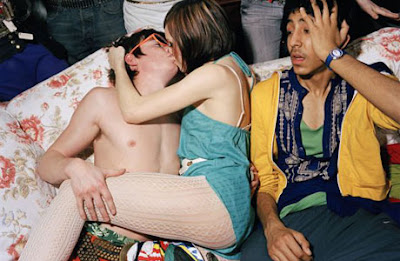The award categories are as follows:
- Best Short-form Drama (TV)*
- Best Soap (TV)**
- Best Drama Series (TV)
- Best Comedy / Light Entertainment Series (TV)
- Best Screenplay (Feature Film)
- Best Radio Play
- Best Play (Theatre)
- Best Play for Children and Young People (Theatre)
- Best Videogame Script
- Outstanding Contribution to Children's Writing
** Soaps are defined as high volume long-running TV drama series with more than one new episode broadcast per week.
Please note: for the purpose of clarification as regards the television categories, Best Short-form Drama and Best Drama Series may include adaptations.
There will also be a Best Book Award, for which submissions will be sought from publishers. For more information about this award and how it’s run, see below.
Please note: all awards will be given to the writer(s), not the production as a whole, so please make your nominations based on the quality of the writing not the standard of production.
Eligibility
Nominated writer(s) must be British or work in Britain. Eligible programmes / plays / games etc. must have been first released, published, performed or broadcast during the period 1 June 2007 - 31 May 2008 inclusive.
If you have any questions about this, please contact the Guild office.
If you would like to nominate in any or all of the above categories, please email erik@writersguild.org.uk and quote your Guild membership number. Please make it clear which writers you are nominating in which categories.
Nominations may also be submitted via post to the Guild office. Please address nominations to 'Writers' Guild Award nominations', Writers' Guild of Great Britain, 15-17 Britannia Street, London WC1X 9JN
The deadline for nominations is Monday 14thJuly 2008 and the shortlist will be announced on Friday 19th September 2008.
The shortlists and winners in each category will be chosen by the relevant Guild Craft Committee or an appropriate jury appointed by the Guild's Executive Council.
There will also be a Lifetime Achievement Award which will be awarded to a Guild member by the Executive Council.













